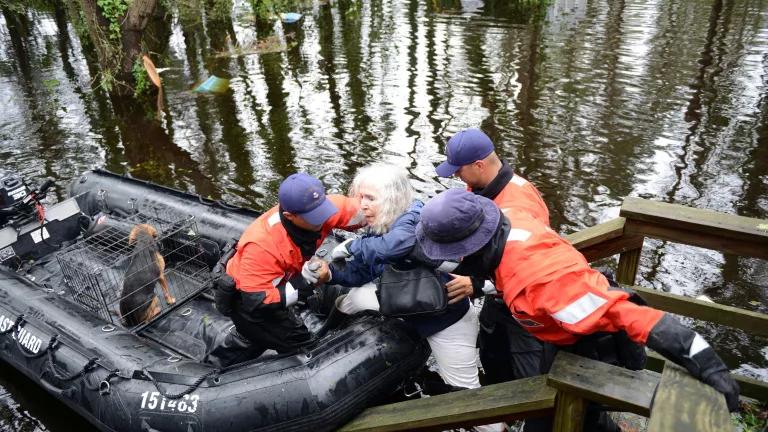President Trump Tries to Take Development Banks Backwards
The Trump Administration has weakened guidance on how the U.S. will vote at the multilateral development banks—such as the World Bank and Asian Development Bank. The new guidance tries to weaken existing U.S. restrictions on funding for coal power plants and tries to influence future investment decisions by these institutions in support of the fossil fuel industry. These institutions have largely gotten out of direct funding of coal power plants as they realized that they are bad economics and bad for the environment.
The Trump Administration quietly revoked the previous guidance from 2013 which significantly restricted the use of public resources from these development banks to support coal projects. The new language—“Treasury Guidance for U.S. Positions on Multilateral Development Banks Engaging on Energy Projects and Policies”—directs the U.S. representative to: “Help countries access and use fossil fuels more cleanly and efficiently.” The most direct impact of this policy is likely to be U.S. support for building more coal plants abroad.
Pretending that what the world needs is more fossil fuels is the wrong direction in efforts to tackle climate change and should raise concerns by the bankers at these development banks as these projects don’t make economic sense.
High Costs, Massive Delays
The last major coal project funded by the World Bank and the African Development Bank, the Medupi plant in South Africa, was originally budgeted at $5 billion USD. We now know that the project is going to be at least three times over budget. Medupi will end up costing $15 billion in terms of total capital expenditures, plus a write-off loss of at least $700 million because of a take-or-pay coal supply agreement that the utility must pay anyway because of the massive delays. The project began in 2007 and the utility company Eskom projected that the plant would be fully operational within four years. The first and only operational unit did not come online until 2015, eight years after the project started and four years later than projected. Now, a decade after the project started, the project is still not completed.
The Trump Administration's attempt to take the multilateral development banks backwards on their policies is willfully ignorant of the economic realities of fossil fuel projects around the world.
Trump Administration Ignoring the Reality of Clean Energy
While this change of position attempts to try to push more fossil fuel use, the rest of the world is lining up behind the clean energy transition. Even financial institutions like Morgan Stanley have pointed to the inevitability of the transition: “Numerous key markets recently reached an inflection point where renewables have become the cheapest form of new power generation...a dynamic we see spreading to nearly every country we cover by 2020. The price of solar panels has fallen 50% in less than two years (2016-17).”
Clean energy is a better long term investment than energy from fossil fuels like coal. Wind and solar continue to break records for lower and lower costs. Australia, South Africa, Saudi Arabia, and Chile are all building wind and solar projects that are cheaper or competitive with coal power plants. If we need any further proof, it’s the fact that even the Asian Infrastructure and Investment Bank, covering some of the most rapidly-expanding countries in terms of energy consumption in the world, and headquartered in Beijing, China, has a mission to be “lean, clean and green.” According to its president: “There are no coal projects in our pipeline, and we will not consider any proposals if we are concerned about their environmental and reputational impact.”
The rest of the world is transitioning fast towards clean energy. America should be trying to help lead the world towards clean energy innovations and not try to push more fossil fuel investments.
Promoting Dirty Power Plants
Trump wants to saddle developing countries with technologies that are going out of favor in the market. He’s trying to find ways to subsidize manufacturers of coal equipment at the expense of the global climate. He certainly isn’t doing this to help developing nations.
The decision to promote fossil fuel use abroad comes at the expense of the most vulnerable people across the world. Those who will be most severely impacted are communities living closest to dirty coal plants that will spew toxic air pollution into the air and waters. It will be communities that will suffer most from the coal plant’s negative impacts, such as respiratory illnesses and premature deaths from coal plant emissions, less productive agricultural yields, decimated fisheries and ruined livelihoods. Consider also that Trump is cutting the R&D budget for “clean coal” domestically, so there’s no reason to believe the false claim that the U.S. would be “helping” to build anything other than dirty plants abroad.
Other Countries Should Reject Efforts for More Coal Projects from Development Banks
The Trump Administration’s new policy is trying to push multilateral development banks to use scarce public resources for bad economic investments. Recent examples show that these projects don't make financial sense as they went way over budget. And the economics have gotten even worse since the Medupi coal power plant in South Africa was approved as the cost of renewable energy has continued to rapidly decline.
Other countries should stand up to this effort and not weaken the investment decisions of the development banks. They should help to continue to focus these institutions on supporting developing countries in gaining access to clean renewable energy and energy efficiency.




